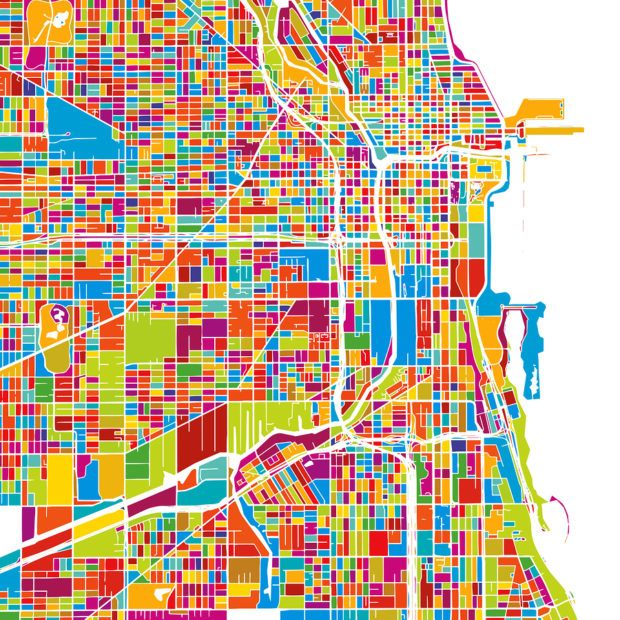ProPublica and Consumer Reports have issued a response to the opinion column by Insurance Information Institute’s James Lynch criticizing their report, Minority Neighborhoods Pay Higher Car Insurance Premiums Than White Areas with the Same Risk.
As reported by Insurance Journal (Carrier Management’s sister publication), the report claims insurers overcharge drivers in minority ZIP codes compared to drivers in other ZIP codes with similar payouts on claims.
The I.I.I.’s criticism, I.I.I. Viewpoint: Why ProPublica’s Auto Insurance Report Is Inaccurate, Unfair and Irresponsible, which was published by Carrier Management and Insurance Journal, heavily criticized the report’s methodology and conclusions.
The following is the unedited reply to I.I.I. and Lynch by ProPublica and Consumer Reports:
ProPublica and Consumer Reports read with interest James Lynch’s Op-ed “I.I.I. Viewpoint: Why ProPublica’s Auto Insurance Report Is Inaccurate, Unfair and Irresponsible” (April 5th, 2017). While we appreciate that Mr. Lynch and the industry may disagree with our findings and conclusions, we want to correct for readers several errors he made in describing our work. In fact, we released a detailed methodology of our study, primarily to be as transparent and forthright as possible about what we did and did not do, and about the limitations of our analysis.
Mr. Lynch writes that we concluded that “auto insurers charge unfairly high rates to people in minority and low-income communities.” In fact, we found that the disparities were not limited to low-income communities and persist even in affluent minority neighborhoods.
Mr. Lynch writes that we made a mistake by “comparing the losses of all drivers within a ZIP code to the premium charged to a single person.” This assertion does not properly characterize what we did. We compared the average premium in minority ZIP codes to the average premium in neighborhoods with similar accident costs and a higher proportion of white residents.
Mr. Lynch writes that insurance companies do not set rates based on race or income. Our article does not explicitly say that they do. However, as our article pointed out, companies can use such criteria as credit score and occupation, which have been shown to result in higher prices for minorities.
Mr. Lynch writes that we did not address “how auto insurers priced policies where data about the policyholders and a ZIP code’s loss costs was thin.” In fact, we analyzed in detail California’s system of allowing insurers to set rates for sparsely populated rural areas by considering risk in contiguous ZIP codes.
Mr. Lynch writes that we do not consider that “an auto insurer’s individual loss costs…could vary from the statewide average.” In fact, we acknowledged this point in our article as a potential limitation of our study, while noting that the internal data of one insurance company, Nationwide, showed a greater disparity than the statewide average.
Mr. Lynch also implies we only applied our analysis to a 30-year old driver. As we acknowledged in our methodology, we could not take every variable into account. We did repeat our analysis for more than 40 driver profiles that differed by age, gender, number of drivers, and number of cars. When we ran the numbers, we found consistent results.
Our methodology was developed over more than a year and reviewed by a variety of independent experts in the field (including academics, statisticians, and former regulators), whose feedback we incorporated. We were transparent with the Insurance Information Institute and with the firm the trade group hired, providing all our data and even our code to ensure they could fairly respond.
We would welcome the same transparency in return. While the industry criticizes ProPublica and Consumer Reports for not using company-specific data, such as individual insurers’ losses in each ZIP code, it does not make this information available. If the industry would release it, we would welcome the opportunity to take a look and continue the conversation.
ProPublica and Consumer Reports





















 State Farm Mutual to Pay $5B Dividend to Auto Insurance Customers
State Farm Mutual to Pay $5B Dividend to Auto Insurance Customers  From Skill to System: The Next Chapter in Insurance Claims Negotiation
From Skill to System: The Next Chapter in Insurance Claims Negotiation  Telematics and Trust: How Usage-Based Insurance Is Transforming Auto Coverage
Telematics and Trust: How Usage-Based Insurance Is Transforming Auto Coverage  Is Risk the Main Ingredient in Ultra-Processed Food?
Is Risk the Main Ingredient in Ultra-Processed Food? 





